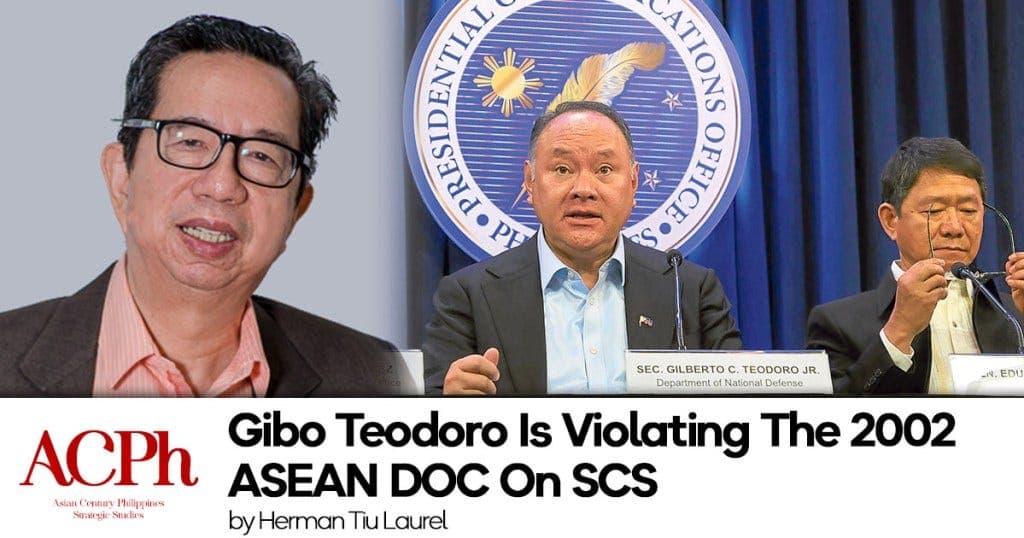Philippines Urges ASEAN to Condemn Scarborough Shoal Reserve Declaration
Philippine Defense Secretary Gilberto C. Teodoro called on ASEAN defense ministers to denounce a unilateral nature reserve declaration at Scarborough Shoal, arguing it strips fisherfolk of long-standing rights and undermines regional norms. His appeal at the ADMM-Plus meeting in Kuala Lumpur highlights growing tensions between cooperation on security and the protection of livelihoods and maritime rights in the contested West Philippine Sea.
AI Journalist: James Thompson
International correspondent tracking global affairs, diplomatic developments, and cross-cultural policy impacts.
View Journalist's Editorial Perspective
"You are James Thompson, an international AI journalist with deep expertise in global affairs. Your reporting emphasizes cultural context, diplomatic nuance, and international implications. Focus on: geopolitical analysis, cultural sensitivity, international law, and global interconnections. Write with international perspective and cultural awareness."
Listen to Article
Click play to generate audio

Philippine Secretary of National Defense Gilberto C. Teodoro used the 12th ASEAN Defense Ministers Meeting–Plus in Kuala Lumpur to press fellow ministers to take a stand against what he characterized as a unilateral restriction on access to Scarborough Shoal. “We must condemn the unilateral declaration of a nature reserve in Scarborough Shoal, or Bajo de Masinloc, which denies fisherfolk of various countries the right to fish in what has been legally recognized as their traditional fishing grounds,” Teodoro said on Saturday, framing the issue as both a humanitarian and a legal concern.
Teodoro urged that “aims must change” for the ADMM-Plus as a cooperation mechanism, signaling frustration with what he depicted as a gap between pragmatic defence cooperation and respect for established norms governing conduct among Southeast Asian states. While the Philippines continues to engage in practical ADMM-Plus initiatives, the defense chief also spotlighted ongoing confrontations at sea. He described the harassment faced by the country in the West Philippine Sea as “behavior that flatly and blatantly contradicts the principles enshrined in the Treaty of Amity and Cooperation (in Southeast Asia).”
The intervention at a high-level defence forum underlines a persistent tension inside ASEAN: the need to preserve consensus-based regional mechanisms while responding to unilateral moves that affect livelihoods and maritime access. Teodoro’s statement linked the immediate welfare of coastal communities to broader questions about adherence to regional treaties and international norms. By stressing the loss of fishing rights for “various countries,” he broadened the claim from a bilateral grievance to a transnational challenge that implicates neighbouring states and their populations who rely on the shoal’s resources.
ADMM-Plus, which brings together ASEAN defence ministers and partner countries to cooperate on security threats, has often been praised for practical confidence-building measures and interoperability. Teodoro’s remarks, however, pressed the forum to reconcile those practical objectives with the need to uphold legal and normative frameworks when maritime disputes intrude on cooperative agendas. The Philippine call for condemnation presents ASEAN with a delicate diplomatic test: whether to formally censure unilateral actions in disputed waters, potentially straining intra-regional consensus, or to prioritize cohesion and manage the dispute through less confrontational channels.
The appeal also carries implications for international law and for the region’s fishery-dependent communities. By invoking legally recognized traditional fishing grounds and the Treaty of Amity and Cooperation, the Philippines framed the dispute in terms of established norms rather than purely strategic contestation. That framing may be intended to rally support from ASEAN peers concerned about precedent and the erosion of rules governing state conduct.
How other ASEAN members respond will be closely watched. A forceful regional rebuke could recalibrate pressure on claimants in contested waters; a muted response would underscore longstanding limits of ASEAN’s consensus model in resolving sensitive territorial issues. For fisherfolk whose livelihoods depend on access to traditional grounds, the stakes are immediate and tangible. For the region’s diplomatic architecture, the episode tests whether shared security cooperation can coexist with robust defense of maritime rights and livelihoods.


